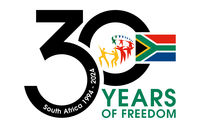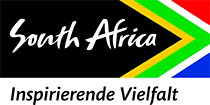Südafrika
26. März 2019
WELCOME REMARKS BY PRESIDENT CYRIL RAMAPHOSA ON THE OCCASION OF THE SADC SOLIDARITY CONFERENCE WITH THE SAHARAWI ARAB DEMOCRATIC REPUBLIC
OR TAMBO BUILDING, TSHWANE
26 MARCH 2019
Your Excellency Dr Hage Geingob, President of the Republic of Namibia and Chairperson of SADC,
Your Excellency, Mr Brahim Ghali, President of the Saharawi Arab Democratic Republic,
Your Excellency, Mr Yoweri Museveni, President of Uganda,
Your Excellency, Mr Emmerson Mnangagwa, President of Zimbabwe,
Your Excellency, Dr Tom Thabane, Prime Minister of Lesotho,
Your Excellencies, Heads of Delegation,
Your Excellency, Former President Obasanjo,
Representatives of the Chairpersons of the African Union and AU Commission,
Esteemed comrades from the liberation movements and governing political parties in our region,
Your Excellency, Ambassador Joseph Nourrice, Deputy Executive Secretary of SADC,
Distinguished Guests,
Members of the Media,
Ladies and Gentlemen,
On behalf of the people and government of South Africa I would like to welcome you to our country.
We are honoured to be hosting this historic act of solidarity with the Saharawi people.
It is fitting that this conference is taking place in a building named after Oliver Reginald Tambo, a legendary statesman and a committed internationalist who was unwavering in his support for the struggle for self-determination of the Saharawi people.
It was Oliver Reginald Tambo who affirmed, as we do today, that international solidarity is an imperative for progressive peoples everywhere.
Building bridges of friendship is a natural and just course of action for all who share the vision of a world free from subjugation, a world where the strong do not exert their dominance through force of arms.
In the many times he addressed the international community on the anti-apartheid struggle, Comrade OR, as he was known, spoke of the role of ‘men and women of conscience’ in giving voice to the struggles of oppressed peoples everywhere.
Gathered here today are men and women of conscience.
You stood by South Africa during the struggle for our own liberation, and today you are here to affirm your solidarity with the Saharawi people in their quest for self-determination.
The presence of representatives from the national liberation movements of the region, from the African Union and African Union Commission, from the Southern African Development Community and our friends in the international community sends the clearest of messages.
That we are with the people of the Western Sahara.
We stand with you, we support you, and we will never forget you.
This conference reflects our commitment, as the countries of Africa, supported by our friends in the international community, to call for a just, acceptable and lasting solution to the situation in Western Sahara.
It follows on a decision made at the 37th Summit of the SADC Heads of State and Government that took place here in Pretoria in August 2017.
It was the Palestinian poet Mahmoud Darwish, who himself had known the pain of dispossession and exile, who once wrote:
‘A person can only be born in one place. However, he may die several times elsewhere: in the exiles and prisons, and in a homeland transformed by the occupation and oppression into a nightmare.’
We cannot but be moved by the plight of the Saharawi people.
It has been 43 years since Western Sahara was annexed, and for these four decades the people of Western Sahara have had to ensure dispossession, displacement, conflict and the deprivation of their liberties.
The Saharawi people have lived in refugee camps in Tindouf in Algeria since the 1970s, making this one of the longest humanitarian crises the world has known.
In these camps, men, women and children live in desperate conditions, relying on international aid to survive.
The situation of the Saharawi people is a blight on the human conscience, all the more so that it has endured for far too long.
It has been three decades since the United Nations Security Council adopted Resolution 621 of 1998 first calling for a referendum on self-determination for the people of Western Sahara.
But despite successive Security Council resolutions and decisions of the Organisation of African Unity and African Union, this critical step has not taken place.
The ultimate result has been that the people of Western Sahara have been deprived of the most fundamental right of a people – the right to determine their own destiny.
We are here to hear from the Saharawi Arab Democratic Republic and Polisario what we can do to aid them in advancing their cause.
While we are here to express our unwavering solidarity with the just cause of our brothers and sisters, any actions going forward must be decided upon by the Saharawi people and not any external entity.
We are here to deliberate on the way in which we can use our respective positions with the United Nations and African Union to advocate for the urgent implementation, without delay, of all the UN Security Council and AU decisions on Western Sahara, including the holding of a referendum.
It is only through the implementation of these decisions that a solution to the Western Sahara question can be achieved.
This must be done in the spirit of multilateralism, based on the Charter of the United Nations and the applicable provisions of the African Union.
We continue to urge all the parties involved to negotiate, in good faith and without preconditions, to ensure that an enduring solution is found.
We once again affirm our support for the work being done by the AU and the UN, particularly the initiatives taken by the UN Secretary-General.
We are immensely encouraged by the efforts of the Personal Envoy of the UN Secretary-General for Western Sahara, former German president Horst Koehler, who is facilitating a political dialogue between the Kingdom of Morocco and Polisario.
This is a development to be welcomed and encouraged.
As countries of the SADC region who have waged struggles in pursuit of our own liberation, we know too well the pain of being deprived of the right to be treated as full citizens in the land of one’s birth.
The pain of the Saharawi people, their trauma brought about by displacement and exile, is ours too.
So long as the aspirations of the people of Western Sahara are not met, we will fall short of realising the vision of the AU’s Agenda 2063 of a continent at peace with itself.
As a collective, let us reaffirm our support for the UN process that seeks to bring these two African nations, Morocco and the SADR, back to the negotiating table.
As lovers of peace and freedom – as men and women of conscience – let us step up our international solidarity efforts, in both word and deed, with the people of Western Sahara, with Polisario and with the Saharawi Arab Democratic Republic.
It was international solidarity that brought down the barbaric system of apartheid, and it is international solidarity that will see realised the foremost aspiration of the people of Western Sahara: to be independent and free.
I am told the deliberations held on the first day of this conference have been fruitful and that consensus has been reached on a number of key issues.
Let us continue to harness this spirit of cooperation and of multilateralism in pursuit of a continent in which all its people are free.
I once again welcome you all and wish you well on this final day.
I thank you.


